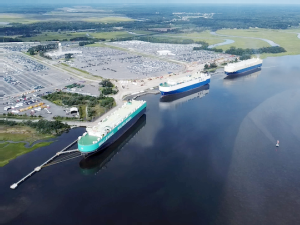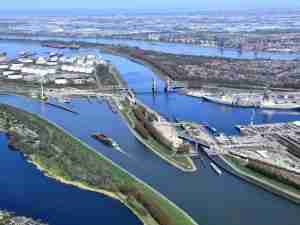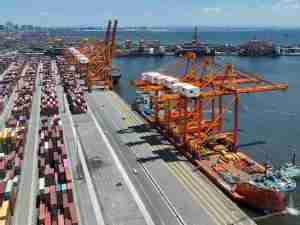Port of Long Beach Harbor Commission adopts port budget
posted by AJOT | Jun 29 2017 at 09:11 AM | Ports & Terminals
Long Beach continues modernization, environmental programs
The Long Beach Board of Harbor Commissioners has approved a $748 million budget for the Port of Long Beach in the next fiscal year, with more than 60 percent set aside to continue a modernization program that is the largest of any U.S. seaport.
The budget will be presented to the Long Beach City Council for approval. For the fiscal year starting Oct. 1, 2017, the Port plans to spend $457 million on capital projects — part of this decade’s $4 billion program to increase efficiency by upgrading terminals, waterways, bridges, rail lines, marine safety and other vital infrastructure.
The City of Long Beach Harbor Department receives no taxpayer funding to operate the Port of Long Beach. Port operations are supported by income from terminal leases and fees charged to terminal companies and shipping lines for moving cargo through the Port.
“This spending blueprint advances the nation’s largest seaport modernization program and our practice of investing revenue back into our harbor, a leading economic engine for this region, the state and the nation,” said Harbor Commission President Lori Ann Guzmán. “The budget reflects this Port’s fiscally prudent, results-driven approach to budgeting and capital improvements.”
The fiscal year 2018 budget projects a 1.8 percent increase in operating revenue over the current year. The budget puts $16.4 million into “net position,” designating it for spending in the future, beyond fiscal year 2018. Meanwhile, as part of the approved budget, the Port is expected to transfer $18.7 million to the City’s Tidelands Operating Fund, which is used for beachfront improvements in Long Beach.
Ongoing major capital improvement projects include the Gerald Desmond Bridge replacement and the Middle Harbor redevelopment, a model for green cargo operations and the most advanced facility of its kind in the world.
Another highlight in the budget includes $404,000 in funding for the Port Community Grants Program, approved by the Harbor Commission this year. Over the next 12 to 15 years, funding from the environmental grants program — the largest voluntary program of its kind in the nation — will help offset the impacts of port operations on the surrounding community.










